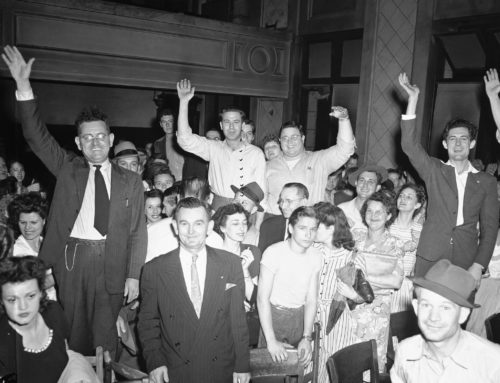Donald Trump’s ‘Lynching’
Share
Explore Our Galleries
Breaking News!
Today's news and culture by Black and other reporters in the Black and mainstream media.
Ways to Support ABHM?
By
Donald Trump is reckless with words and careless with actions. There’s no evidence that he thinks deeply about anything. Which is why I was not shocked when he condemned the House impeachment inquiry as a “lynching” earlier this week.
“So some day, if a Democrat becomes President and Republicans win the House, even by a tiny margin, they can impeach the president, without due process or fairness or any legal rights. All Republicans must remember what they are witnessing here — a lynching. But we will WIN!”
More than 4,000 African-American men, women and children were lynched — burned, beaten, drowned, shot or hanged to death — between 1877 and 1950. Trump almost certainly doesn’t know this. To a president who operates as an internet troll as much as a head of state, “lynching” is just another provocation — another way to seize the national conversation in the face of bad news and criticism. And to a man who can’t see beyond his own ego, “lynching” must feel like an apt analogy for the scrutiny of his political opponents. He can’t imagine anything worse.

Some of the 28 men charged in the lynching of Willie Earle celebrating their acquittal in court in Greenville, S.C., on May 21, 1947. PC: Associated Press
Trump’s behavior didn’t shock me. What did shock me was a comment from Senator Lindsey Graham, Republican of South Carolina. When asked about the president’s “lynching” remark, Graham said the comparison was apt: “Yes, this is a lynching and in every sense this is un-American. I’ve never seen a situation in my lifetime as a lawyer where someone is accused of a major misconduct and cannot confront the accuser or call witnesses on their behalf…”











Comments Are Welcome
Note: We moderate submissions in order to create a space for meaningful dialogue, a space where museum visitors – adults and youth –– can exchange informed, thoughtful, and relevant comments that add value to our exhibits.
Racial slurs, personal attacks, obscenity, profanity, and SHOUTING do not meet the above standard. Such comments are posted in the exhibit Hateful Speech. Commercial promotions, impersonations, and incoherent comments likewise fail to meet our goals, so will not be posted. Submissions longer than 120 words will be shortened.
See our full Comments Policy here.